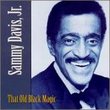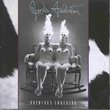| All Artists: Ludwig van Beethoven, Bruno Walter, Columbia Symphony Orchestra Title: Bruno Walter Edition - Rehearses Beethoven Symphonies Members Wishing: 0 Total Copies: 0 Label: Sony Release Date: 5/16/1995 Genre: Classical Styles: Historical Periods, Classical (c.1770-1830), Modern, 20th, & 21st Century, Symphonies Number of Discs: 1 SwapaCD Credits: 1 UPC: 074646446522 |
Search - Ludwig van Beethoven, Bruno Walter, Columbia Symphony Orchestra :: Bruno Walter Edition - Rehearses Beethoven Symphonies
 | Ludwig van Beethoven, Bruno Walter, Columbia Symphony Orchestra Bruno Walter Edition - Rehearses Beethoven Symphonies Genre: Classical
|
Larger Image |
CD DetailsSimilarly Requested CDs
|
CD ReviewsFascinating to crawl inside a great conductor's head John Grabowski | USA | 05/24/2005 (4 out of 5 stars) "I had to agree with the reviewer below me--What part of "Rehearsal" does Steven J. Sweeney not understand? He acts as though we are being duped when in fact this is a wonderful treat--I wish record labels would do this sort of thing more often. (Bernstein rehearsals, anyone? Those ought to be riveting.) Of course, it helps that Walter is wonderfully articulate overall--I've watched some stickwavers in rehearal and couldn't figure out what they were getting at, and wondered how the players could figure it out. (How Furtwangler worked his magic is, I suppose, a mystery he took to his grave with him.) On this recording, recorded right near the end of Walter's long life (this man made his first recording in 1900!), we learn the superb attention to detail that went into any Walter performance. He notices things I'd never noticed in these familiar pieces (the way various string textures and rhythms interweave to form an almost seamless legato in the Beethoven 4th adagio, for example), or things that aren't apparent if you don't have a score in front of you, and that makes the experience here rewarding. Walter was a master of getting what he wanted from musicians, by being relentless, but also unceasingly polite at the same time, making him a rare breed of conductor. Most conductors up to that time brow-beat their players to achieve their ends. (Too bad, according to most accounts, he was not such a courtly gentleman in his private life, but that's another subject.) He was also great at talking to his musicians while they played rather than stopping them every two bars, so that they got a lot of playing *and* learning done at the same time. Most players agree, this was the least painful pay. Listening to the extracts, you realize all the calculated effort that went into making a performance sound effortless, as though "the music were playing itself." Fascinating. Just one passage on the bassoon--over in seconds--is rehearsed over and over. My only complaints are 1) the sound is a little boomy, and 2) these exerpts are too short. There is another DOUBLE CD set of Walter rehearsing but one work, the Mozart "Linz" Symphony. That release is a treasure, because we get all four movements in such great detail. There is also a less-revealing rehearsal and a fun interview on his Mahler 9th set (which should be on any Mahler lover's shelf anyway because it is one of the greatest Mahler 9ths ever recorded.) The present CD could have been expanded into a two-CD set, since we are dealing with so much Beethoven. The short excerpts here don't do the rehearsal process, or Walter's magnificent conceptions of these works, quite the justice they warrant. But they are better than Toscanini rehearsals I've heard, where all the maestro does is scream at the players in Italian." Bruno Walter fascinates me Alan Majeska | Bad Axe, MI, USA | 08/27/2005 (5 out of 5 stars) "Bruno Walter (1876-1962) fascinates me: these rehearsal tapes released on CD as part of Sony's BRUNO WALTER EDITION (1995) of Beethoven Symphony 4: II. Adagio; Symphony 5: I. Allegro con brio; Symphony 7: I.; and Symphony 9: II. show Walter, then 81/82 years old in great shape, very dynamic and charismatic in how he communicates to the members of the Columbia Symphony (Los Angeles, California). Walter is kind and genial, worlds away from imperious conductors like Toscanini, Szell, or Reiner, but there is no doubt that Walter believes in what he wants, and insists the musicians do things HIS WAY. Walter often begins with "gentlemen, the music needs ......" not "I told you to play it this way, and you'd better do it as I tell you." So, he was more democratic in his approach to rehearsals and the role of a conductor over an orchestra than were many conductors in 1958/59. The job gets done efficiently, and the orchestra players respect and work for Walter eagerly. But there is no doubt in listening to this disc, that Walter is THE BOSS.
Bruno Walter had been conducting for over 60 years when these tapes were made in 1958/59, and he brought years of experience with him to the works at hand. He is particular about rhythm, rehearsing a given passage several times, but I never got the feeling he was beating the life out of a rhythmic pattern, motif, or melodic fragment. Walter is very consistent, and corrects the musicians, especially in Symphony 7:I, for an incorrect rhythmic pattern in the Allegro of this movement. He states that the rhythm in questions was always a problem with orchestras he worked with in Beethoven 7, "all over the world." So this disc along with VAI's DVD, BRUNO WALTER: the MEASTRO, the MAN, are very instructive and interesting to conducting students and orchestra players about one of the 20th century's great conductors. Also, check out Walter's rehearsal of Mozart's Symphony 36 "Linz" with the Columbia Symphony Orchestra, a New York group of freelance players, NOT to be confused with the Los Angeles group on this disc." |

 Track Listings (4) - Disc #1
Track Listings (4) - Disc #1








